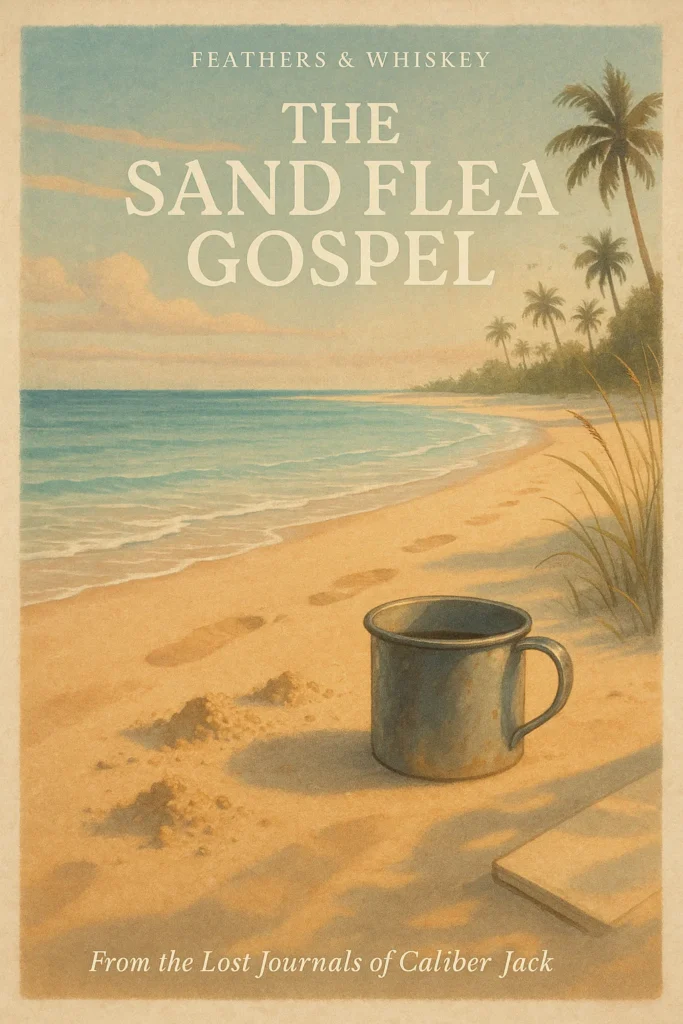The Sand Flea Gospel
From the Lost Journals of Caliber Jack
The tide was pulling back toward the reef when Jack woke to the sound of gulls arguing over a fish head outside the shack. The morning light had that flat, silver quality that made the horizon and the sea look like two sides of the same coin.
He brewed coffee over a small blue flame and carried the tin cup down to the beach. The sand was still cool, packed hard by the night tide. A breeze moved through the palms with the lazy rhythm of an old man fanning himself at church.
That’s when he saw them — the sand fleas — dozens of them burrowing along the edge of the surf. Tiny things, smaller than a man’s thumb, but working like they owned the place. Every time a wave slid up and erased their holes, they just started again. No complaint, no pause, no sense of tragedy. Just the rhythm of the sea and their place in it.
Jack sat down in the sand, coffee balanced on one knee, and watched. The little creatures built their tunnels faster than the water could destroy them. They seemed to know that permanence was a fool’s hope. The trick was in the trying.
He thought about men he’d known — the poacher in Ruaha who bragged about cheating death, the preacher on Andros who promised salvation for the price of a bottle, Dutch with his busted seaplane and grand theories about women and weather. All of them chasing something the world had already warned them they couldn’t keep.
Jack laughed softly. “You little bastards have it figured out.”
He took a long drink of coffee gone cold and leaned back on his elbows. The sun was up now, throwing golden light over the water and turning every grain of sand into a mirror. The fleas kept digging. The sea kept taking.
A shadow fell across him. Dutch stood there, holding two mugs of rum that he called breakfast.
“What the hell are you doing down here this early?”
Jack nodded toward the tide line. “Listening to a sermon.”
Dutch squinted. “I don’t hear anything.”
“Then you’re not listening,” Jack said. He took one of the mugs and raised it like a toast to the crawling congregation.
They sat in silence for a while, the kind that comes easy between men who’ve shared too many storms. When the sun climbed higher, Dutch muttered something about fuel lines and wandered back toward his plane.
Jack stayed. He pulled his weathered notebook from his shirt pocket, flipped past sketches of fish and forgotten names, and wrote one line before the wind turned the page:
The smallest creatures know the biggest truth — keep digging, even when it doesn’t last.
He closed the book, drew a line in the sand with his finger, and watched the next wave take it.
Then he smiled. “Sermon’s over.”
